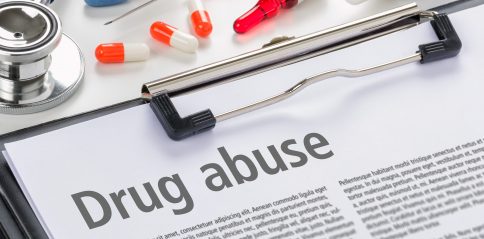Mental health and addiction – two areas in healthcare that are often interconnected but are often treated separately. In reality, though, one can significantly affect the other. Mental health issues like anxiety, depression, bipolar disorder, and PTSD, among others, can all contribute to one's substance use. Meanwhile, drug and alcohol detox can also lead to mental health problems, such as depression, anxiety, and even psychosis. This connection is why mental health and addiction treatment centers have been popping up across the country, providing people with comprehensive care to address both their mental health and addiction problems.

- Understanding the connection between mental health and addiction
The connection between mental health and addiction is multi-faceted. On one hand, individuals with mental health problems may use drugs and alcohol as a coping mechanism to alleviate their symptoms. They may self-medicate to feel better, and while substance use may initially provide some relief, it can often make mental health issues worse. On the other hand, substance use can cause or worsen mental health problems, often resulting in a vicious cycle of addiction and mental health issues.
- Types of care available in mental health and addiction treatment centers
Mental health and addiction treatment centers offer a range of evidence-based treatments to cater to an individual's unique needs. Some of the treatments available may include:
- Behavioral therapies: therapies such as Cognitive-Behavioral Therapy (CBT) are common in treating both mental health and addiction concerns. CBT teaches patients to recognize harmful patterns of behavior and create more positive habits to replace them.
- Medication-assisted treatment: this approach uses medication to help reduce the painful withdrawal symptoms and cravings that arise when someone stops using addictive substances. It is often paired with counseling and behavioral therapies.
- Group therapy and support in rehab programs: group therapy involves sharing experiences and emotions with others going through similar challenges. It also offers a sense of community and support for individuals who may feel isolated and alone in their addiction struggles.
- Seeking help for mental health and addiction issues
Many people feel hesitant to seek help, believing they can handle their addiction or mental health issues on their own. Still, self-treatment or using drugs or alcohol to cope will only lead to negative effects in the long run. Mental health and addiction treatment centers offer individuals a chance to overcome their struggles in a safe and supportive environment.
- The impact of mental health and addiction treatment centers
Mental health and addiction treatment centers provide a lifeline to individuals battling various forms of mental illness and addiction. By addressing both issues simultaneously, these centers can help individuals achieve a better chance of long-term recovery and improved quality of life. Furthermore, these centers also work to reduce the social stigma around mental health and addiction, helping to break down barriers to treatment.
Mental health and addiction treatment centers provide comprehensive care to individuals with complex and interwoven mental health and addiction issues. Through various evidence-based treatments, these centers can help individuals begin the journey of long-term recovery and improved quality of life. If you or someone you know is struggling with addiction or mental illness, reaching out to a mental health and addiction treatment center is often an essential first step toward healing.
 icons at the top right corner of the subsection.
icons at the top right corner of the subsection.